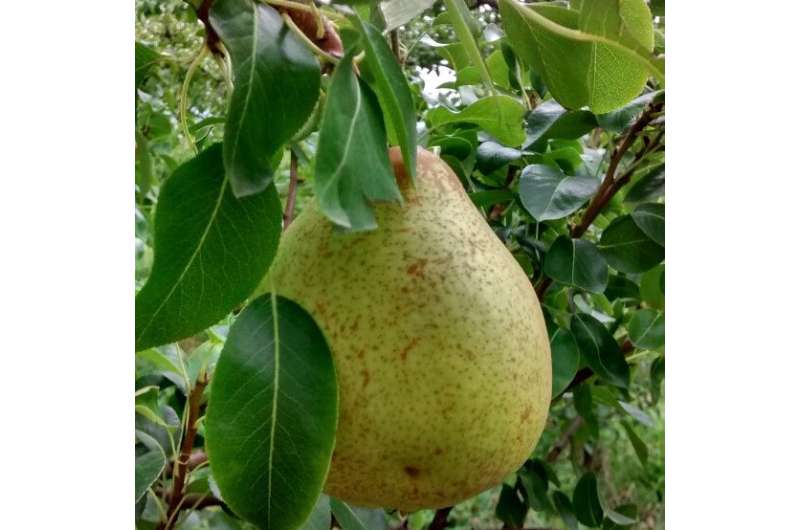Effects of potassium fertilization in pear trees

The amount of exchangeable potassium (K) contained in native soil does not always meet the necessary nutrient demand for a pear tree, which makes the use of K based fertilizer essential. Brazilian farmers face daily challenges to increase their productivity. Such challenges include a lack of knowledge of optimum fertilizer doses, and the critical levels of those fertilizer.
In a recent article published in Agronomy Journal, researchers report on a study to determine the impact of K based fertilizers on quality and yield of pears in an orchard with a long history of fertilizer use, in order to establish critical levels of K in the soil and leaves.
The team discovered that the levels of exchangeable K in the soil increased along with the application of K based fertilizers, but they did not find a correlation with the K concentration in leaves and fruits. Therefore, it was not possible to estimate the critical levels of K in the soil and leaves. Moreover, the fruits given higher doses of K showed the lowest values of ethylene production and respiration rate, which resulted in an increase in storage life in cold rooms and on the shelves.
More information: Paula Beatriz Sete et al, Potassium fertilization effects on quality, economics, and yield in a pear orchard, Agronomy Journal (2020).
Journal information: Agronomy Journal
Provided by American Society of Agronomy



















